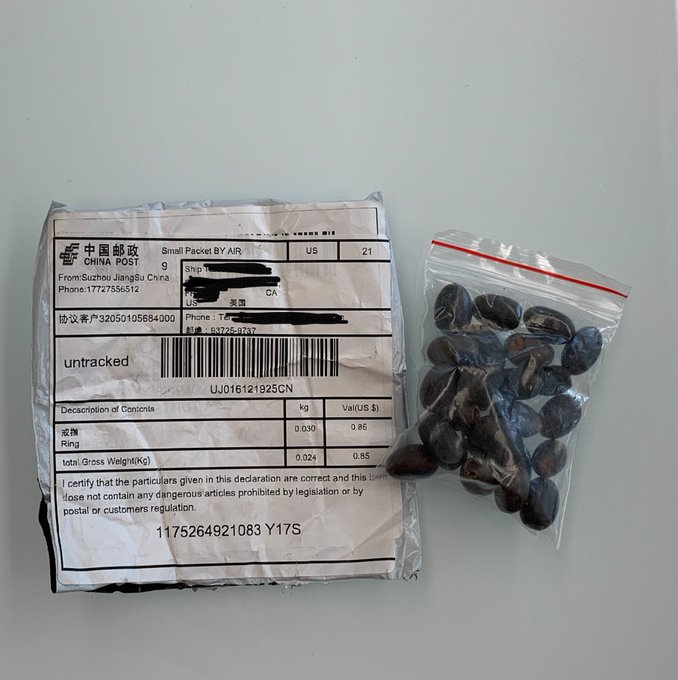Authorities in all the 50 states in the United States are scrambling to track unsolicited mails containing Made in China seeds sent to unsuspecting residents in what experts feel could be part of China's ecological warfare on the US.
After destabilizing the US through its bioweapon aka the novel coronavirus launched from Wuhan, China is now sending these seeds about which the agriculture experts are warning - "Planting unknown seeds could lead to the introduction of invasive plant species or harmful plant diseases."

Texas Agriculture Commissioner Sid Miller told the public to treat the mystery seed packages as "radioactive like they are Kryptonite." In Texas alone, at least 200 residents have received the mystery seeds, according to Fox 4.
The suspicious seeds have been mailed to residents in all 50 states through China Mail with writings in Chinese and were labeled as "jewelry" for U.S. Customs purposes.
The US Department of Agriculture has now issued warnings and asked the recipients not to plant the mystery seeds from China. Meanwhile, the USDA has launched an investigation along with the customs and border officials, federal agencies, and state governments.
The USDA in a statement asked the recipients of the unsolicited mail from China to hold onto the mystery seeds, the package, including the mailing label till they are contacted by somebody from the State department of agriculture or APHIS.
"Do not plant seeds," it warned. APHIS too issued a similar warning on its official Twitter account.
In an article published on Gatestone Institute, Gordon G. Chang, an expert on US-China relations observed that this could be an attempt by China to launch ecological warfare on the US, after its biowarfare through the coronavirus from Wuhan.
Citing Brandon Weichert of the Weichert Report, Chang observed that the Chinese have been using unconventional methods against the US for the last forty years.
It has used economic warfare, cyber warfare, even biowarfare through the novel coronavirus, and now it was trying ecological warfare, Weichert said.









